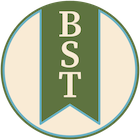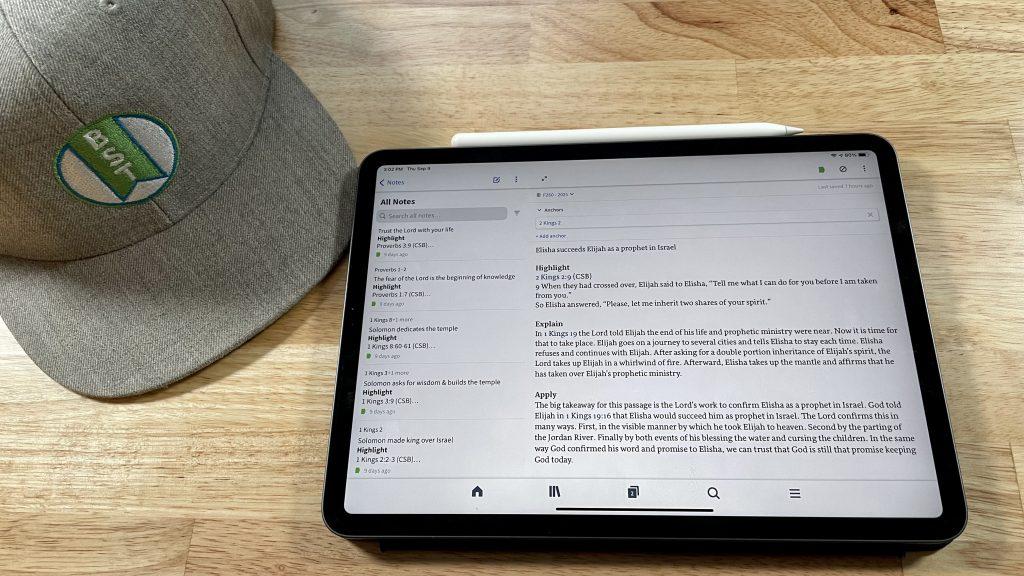There you are, sitting with your Bible in front of you. You want to study the Bible, but you don’t know where to start. You try a few things and find yourself throwing in the towel because it’s too hard. Truth be told, that’s a lot of us. We don’t know how to start studying the Bible and it frustrates us to no end.
The Bible is a big book, so it’s hard to figure out where to begin. That’s why I want to walk through a simple process that will help us start studying the Bible. It’s a process we can repeat time and time again when we’re ready to embark upon a new study. We will briefly look at something we should never do in Bible study, and then move into the heart of this week’s tip. So, let’s dive in!
Don’t Wing It
When it’s time to start studying the Bible, there are definitely do’s and don’ts we ought to be mindful of. We will cover the do’s in the next section, for which there are a few; but, there is only one thing we shouldn’t do, and it is this: don’t wing it.
In the introduction to Foundations, Robby Gallaty recalls when he used to use the “OPRA” method of Bible study. He would Open his Bible, Point to a random passage, Read it, and try to find something to Apply. Many Christians daily use this approach to Bible study. Unfortunately, this approach will not provide much spiritual growth. Instead, we end up with nothing more than fortune cookie Christianity, as we seek spiritual nuggets.
Simply put, if we fail to plan, then we plan to fail. This is so true for Bible study. We cannot come to the Bible without a plan. Without a plan, we end up using the “OPRA” method looking for spiritual nuggets in random verses; or, worse, we stop reading the Bible altogether. Neither of these outcomes is good, so we should avoid them like the plague.
Don’t wing it, thinking you’ll make progress. Instead, let’s look at what it takes to start studying the Bible and make progress.
Don't wing it with your Bible study. Come in with a plan if you want to achieve spiritual growth. Share on XHow to Start Studying the Bible
Knowing what to avoid is pretty easy, right? Well, the do’s are just as straightforward. All we need to do is ask ourselves a few questions and put in a little bit of work on the frontend. Once we do that, all we need to do is work the plan. There are two general questions we need to ask: 1) what type of study do we want, and 2) what’s our time commitment? Let’s look at each question.
What Type of Study Do You Want to Do?
The first question we need to ask is this: what kind of study do we want to do? We have lots of options when it comes to Bible study, so we need to pick one that’s going to help us achieve our desired goal. Here are few different types of studies to consider:
Survey Study
One of the best ways to start studying the Bible, especially when looking at a new book, is to get a broad overview. A survey study allows us to do just that. This type of study will give us a broad understanding of a Bible book, its major themes, and overall structure. We will also learn things like: the book’s author, dating, occasion for writing, and other important details. The end result is a broad brush stroke approach that prepares us for deeper studies in the future, while sharpening our overarching understanding of the Bible.
Topical Study
If we have a specific subject or idea we want to study, then a topical study is a worthy option. These studies are good for getting big picture looks at what the Bible says on any given topic. Instead of focusing on a singular book of the Bible, a study will likely span the entirety of Scripture. Like a survey, this is a great way to get general information about the Bible and what it teaches.
Verse by Verse
When we’re ready to take a deeper dive into Scripture, an exegetical or expository study is the way to go. This type of study is perfect, whether we’re studying one verse, working with entire chapters, or something in-between. Most Bible studies, in some form or fashion, take this approach, as it looks to break down what a book, chapter, section, and verse means and how we apply it to our lives.
Word Study
Very similar to a topical study, a word study is usually birthed from another type of study. For example, when going through a verse by verse study and we encounter a word we want to learn more about. This is when we would want to engage in a word study. These often go hand-in-hand with topical studies, as we want to uncover the underlying Greek and Hebrew in our topic to find related words and topics. Word studies are a great way to learn about an author’s vocabulary and how it impacts our application of Scripture.
To start a new Bible study, ask yourself two questions: 1) what type of study do I want, and 2) what's my time commitment? Share on XWhat’s Your Time Commitment?
Once we’ve chosen the type of study we want, the next thing to consider is our time commitment. This involves asking ourselves a couple questions: 1) how deep do we want to go, and 2) how long do we want to study it?
How Deep?
The first question we must ask is how deep down the rabbit hole do we want to go? Do we want to skim the surface and only get a general overview, or do we want to mine the depths of Scripture and get everything we can? Will our exegetical study be chapter level or verse by verse? Do we want to do a simple or advanced word study? Our answers to these questions will determine how we approach the study, as well as help us answer the next question.
How Long?
The next question is this: how long do we want to study this topic or book? If all we want to do is a general survey of a book like James, then we can work through that in a day or two. But, if we want to study the same book in a verse by verse format, then we need several weeks or months to complete the study.
The answer to these two questions will go a long way in determining how we will approach our study. This also influences the type of study we choose.
Make the Plan, Work the Plan
Once we figure out the type of study we want, how deep we want to go, and how long we want the study to last, all that’s left is to make the plan. The plan doesn’t have to be anything more complicated than making a note of our answers to those questions.
For example, if we want to do an exegetical study on the Sermon on the Mount that lasts 3 weeks, then we can use the following basic plan:
- Week 1 – Study Matthew 5
- Week 2 – Study Matthew 6
- Week 3 – Study Matthew 7
Then, under each week, we can divide each chapter into smaller sections that we can study on each day. For Matthew 5, it could be something as simple as:
- Monday – The Beatitudes (vv. 1-12)
- Tuesday – Salt & Light (vv. 13-16)
- Wednesday – Christ Came to Fulfill the Law (vv. 17-20)
- Thursday – Anger & Lust (vv. 21-30)
- Friday – Divorce & Oaths (vv. 31-37)
- Saturday – Retaliation (vv. 38-42)
- Sunday – Love Your Enemies (vv. 43-48)
With our plan in place, all we have to do is work it to completion. And if we have to adjust our plan as we go, that’s fine. The idea is to have a target to keep us focused in our studies. But, don’t overcomplicate the process. Keep it simple and have fun!
Still Stuck?
Are you still stuck and unsure of where to start studying the Bible? That’s okay. Let me help you. Here is an approach I generally take.
- Pick a book of the Bible to study
- Do a survey study of the book
- After the survey, do an exegetical study
- Along the way, find key words to look up as word studies
- With the themes found in your survey, end with a topical study
- Rinse & repeat with another book of the Bible
I recommend starting with one of the general epistles like James or 1 Peter. Work your way through one book, and then move on to the next one.
Get Started Today
Bible study doesn’t have to be hard. All it takes to start studying the Bible is knowing what you want to do and making a plan. Don’t overcomplicate the process. You have everything you need to get started.
So, pick a book or topic that interests you and get started today!
All it takes to start studying the Bible is knowing what you want to do and making a plan. Don’t overcomplicate the process. Share on XWeekly Study Prompts
This week, meditate and journal on the following passages:
- Monday – Luke 9:10-62
- Tuesday – Mark 9
- Wednesday – Luke 12
- Thursday – John 3-4
- Friday – Luke 14
- Memory Verses: Luke 14:26-27, 33
Free Bible Study eBook
Enter your name & email below to get a free copy of our "Bible Study Blitz" ebook that will give you 5 tips to enhance your Bible study.





